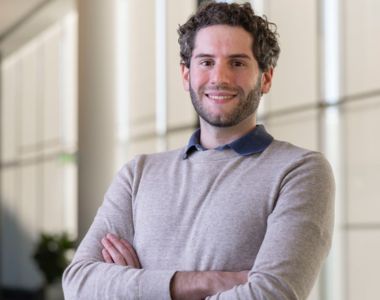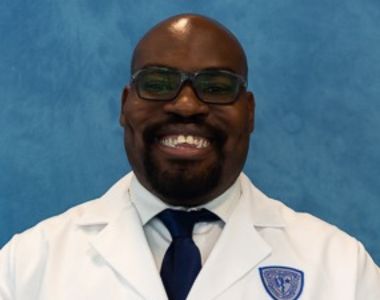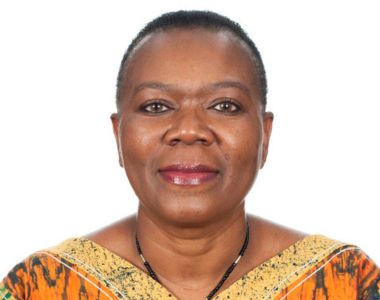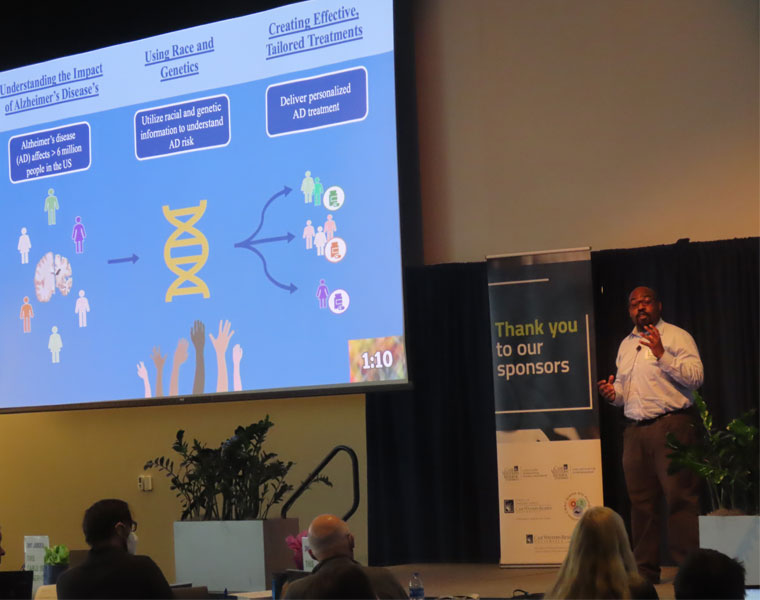Do you think you could summarize an 80,000-word dissertation in just 300 words? That’s the premise of the Three Minute Thesis (3MT™) competition, an event developed by the University of Queensland that’s now held at more than 900 institutions around the world, including Case Western Reserve University.
The 3MT competition cultivates students’ academic, presentation and research communication skills by challenging them to effectively explain their research in three minutes—in a language appropriate to a non-specialist audience—using a single PowerPoint slide. Normally, a dissertation can take upwards of nine hours to present.
The latest iteration of the event at Case Western Reserve took place in February at Tinkham Veale University Center. In recognition of National Dissertation Day today (April 26), The Daily is putting the spotlight on the PhD students who placed in the top three at the competition.
Read on to learn more about their dissertation work and their experiences with the competition. Answers have been edited for clarity and length.

First place: George Hoeferlin
PhD student in biomedical engineering, Case School of Engineering and Case Western Reserve University School of Medicine
1. Tell us about your dissertation!
My thesis aims to characterize the connection between the gut microbiome and performance of intracortical microelectrodes in the brain. By manipulating the types of bacteria present in the gut microbiome, we have observed changes to both the function of our brain implants along with the immune response surrounding the implant in the brain.
2. What was your 3MT competition experience like?
The 3MT competition was amazing! Getting a chance to fine tune and improve my communication and presentation skills was extremely valuable to my professional development. Having the opportunity to travel to Chicago and do it all again representing CWRU was just a bonus.
3. What did you most enjoy about the experience?
I very much enjoyed practicing and seeing whether my three-minute talk was cohesive and understandable. I love the writing and fine tuning process, so putting in a ton of effort to make my talk accessible to the non-scientific crowd was super fun!
4. How did the event impact you?
Competing in the 3MT competition 100% gave me a much needed boost as I approach the end of my PhD work. It made me realize how much I enjoyed the public speaking process and gave me something that I hope to continue doing in the professional work environment after graduate school.
5. Anything else you’d like to add?
I cannot emphasize enough how important and useful participating in something like this is for both new and seasoned graduate students. I would highly recommend anyone to try the 3MT competition out to better your (much needed) public speaking and communication skills. Also, prize money certainly doesn’t hurt!

Second place: Razaq Durodoye
MD/PhD student in epidemiology and biostatistics, Case Western Reserve University School of Medicine
1. Tell us about your dissertation!
Late-onset Alzheimer’s disease is the most prevalent form of dementia and the gene Apolipoprotein E (APOE) is the single most significant risk factor for this neurological disorder. To date there are no effective treatments for Alzheimer’s. My dissertation looks at the genetic contributions to APOE-associated Alzheimer’s disease risk in diverse populations. At its heart, I’m looking to identify population specific genetic variants to ultimately generate personalized treatment options that are informed by one’s race and genetic ancestry.
2. What was your 3MT competition experience like?
It was fantastic! I have stage fright and trouble condensing my dissertation into an accessible presentation and 3MT helped me confront both of these issues. On top of that, the people I’ve since been able to meet and the opportunities that have risen after my participation made the entire experience fun and worthwhile.
3. What did you most enjoy about the experience?
Although I don’t remember much, getting up on stage was my favorite part of this experience! The thrill of an audience coupled with my heartbeat pounding in my ears is something I rarely get these days and opportunities to get out there drive me to continue doing this work.
4. How did the event impact you?
It’s been a fun way to explore making my research accessible. On top of that, getting to practice my public speaking is always useful (even if I still get nervous speaking in front of others).
5. Anything else you’d like to add?
I highly recommend 3MT to all students! You get to better understand how to communicate your research and have a great time doing it!

Third place: Tshiya Subayi
Doctor of Business Administration (DBA) candidate, Weatherhead School of Management
1. Tell us about your dissertation!
Each year around the world an estimated 139 million women give birth. Out of these 139 million, 289,000 die, another 2.1 million suffer morbidity. Maternal morbidity and mortality is increasing in the U.S., the only industrialized country to see this trend. The U.S. has one of the best advanced healthcare systems, therefore, women are not dying because of diseases that cannot be treated, they are dying because of their environment and limited access to healthcare.
Our research is a mixed method study that encapsulates voices from healthcare providers who care for women. The providers assert that the causes of high maternal deaths lay in the social and economic conditions that limit access to healthcare such as mother’s education, payment methods, ethnic biases and lack of specialized health care providers that lead to low utilization of health facilities amongst others. These conditions all contribute to an increase in maternal morbidity and mortality.
2. What was your 3MT competition experience like?
Even though the 3MT competition was widely advertised, I stumbled on the announcement at the last minute. I applied and sent my video just five minutes shy of the deadline. The 3MT team was incredible. They responded a few weeks later with a set of suggestions to improve my presentation and tighten my allocation.
Throughout the preparation period leading up to the competition itself, the committee held a series of preparatory meetings to help design our slides, giving us concrete examples on what to do and not to do. The team helped us prepare by listening to our presentation several times. They gave us so many opportunities to practice and succeed that when I was in front of the audience, I felt nervous at first but supported. I looked at the 3MT committee and my eyes fell on Rachel Begley and the kindness and encouragement I saw in her eyes gave me the courage to deliver my presentation with poise and assurance. Overall, the experience was quite gratifying.
3. What did you most enjoy about the experience?
I most enjoyed preparing for the competition as I challenged myself to go out of my comfort zone. I shy away from speaking in public. The 3MT competition gave me courage to speak in public. Another enjoyable part of the competition was listening to other competitors and learning about all the great initiatives the university is associated with.
4. How did the event impact you?
You may know that most of the contestants in the 3MT competition are from the medical field. I come from the management space, and it was intimidating to hear the contestants coming before me speak about the innovations they are proposing in healthcare. Moreover, I always felt that my research topic did not fit into the business orientation of the Weatherhead School. The 3MT made it possible for the management school to connect the dots. Health equity is about management. On the other hand, the impact was also personal. The competition gave me an opportunity to be a voice for women who are worried about their health care and birth experience. I wanted to make them feel that they matter. Several people approached me and told me that they felt my passion and they will now advocate for women’s health.

